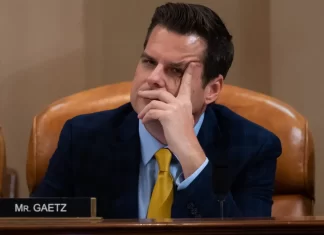Under Ethiopian Prime Minister and Nobel Peace Prize winner Abiy Ahmed, the city of Ambo has turned from being a symbol of freedom into a symbol of repression, as the security forces try to curb the growth of ethnically inspired rebel and opposition groups that threaten his “coming together” vision.
Ambo, which has a large student population because of its university, was at the centre of mass protests that saw Mr Abiy rise to power in April 2018 with a promise to end decades of authoritarian rule in a nation with more than 100 million people belonging to at least 80 ethnic groups.

Most of Ambo’s residents are Oromos – and the protests were largely driven by anger that despite being Ethiopia’s largest ethnic group, they were marginalised from political and economic power, with no Oromo ever serving as prime minister.
Acknowledging Ambo’s role in bringing about change during a visit to the city within days of becoming the first Oromo to hold the prime minister’s post, Mr Abiy said: “Ambo is where we are going to build the statue of our liberty, our New York.”
At a fund-raising event in February 2019, the prime minister sold his watch for 5m birr (about $155,000, £120,000) to kick-start development in the city.
It was a further indication of the huge political significance he attached to Ambo, traditionally regarded as a stronghold of the Oromo Liberation Front (OLF), a former rebel group which laid down arms following peace talks with Mr Abiy.

But a year later, there are few signs of development in Ambo, which is about 100km (60 miles) west of the capital Addis Ababa. Instead, residents are once again complaining of a return of police brutality, with young men being randomly beaten up or detained as they go about their daily lives.
‘I was lucky’
I witnessed some of this during a visit to Ambo.
In one instance about six policemen forced two young men to kneel in front of pedestrians, before kicking them and hitting them with sticks.
In another instance, two young men were forcibly taken to a police station. Their elbows were tied behind their backs. One of them pleaded, in vain, with the officers to untie him.
No-one dared to intervene for fear that the police would assault them too.

The policemen were from the regional force – and their numbers were swelled last Sunday when hundreds more graduated, raising fears that the crackdown will intensify ahead of the general election slated for August. That is the first time that Mr Abiy will face the voters since the ruling coalition chose him as prime minister to order to quell the nationwide protests.
I also saw policemen walking around Ambo with scissors, giving haircuts on the spot to young men whom they perceive to have long hair or afros.
They considered my hair to be an afro but I was lucky – they let me off with a warning to chop it off myself, which I did not do as I was going to leave Ambo in two days’ time.
‘I was unable to access the internet’
Police just assume that men with such looks are troublemakers and supporters of rebel leader Kumsa Diriba, who they see as a major threat to western Oromia’s stability and Mr Abiy’s vision of forcing a new sense of national unity, known as “coming together” .
Having spurned Mr Abiy’s peace overtures in 2018, Mr Kumsa, who is also known as Jaal Maro, is continuing to push for the “liberation” of Oromia from his forest hideout in the remote west.
He split from the OLF, the biggest Oromo rebel group, after it decided to turn into a political party, taking with him an unspecified number of fighters under his command.
The government suspects that Mr Kumsa’s rebels have infiltrated Ambo, and were responsible for the bomb blast at a pro-Abiy rally held last month to show that the prime minister still commands significant support in the city.
The rebels, via their supporters and anonymous accounts, have also been slowly gaining a profile on social media in an attempt to raise discontent against the government, especially through the circulation of the names of victims of alleged brutality by the security forces.
The government’s attempt to keep a lid on dissent has led to frequent internet shutdowns in much of western Oromia since January, and in some areas people cannot even make or receive phone calls. This is despite the fact that Mr Abiy has promised to liberalise the telecom sector and end the monopoly of state-owned Ethio Telecom.














